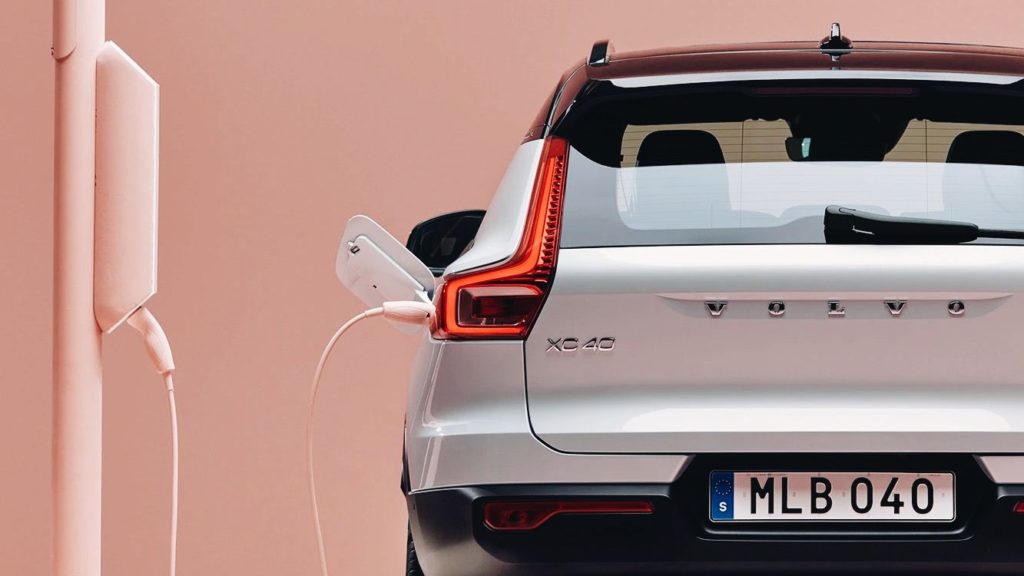Updated March 5, 2021.
Volvo electric cars could completely replace the company’s fossil fuel-powered vehicles by 2030. And they may be leather-free, too.
The Swedish car manufacturer has said that it will exclusively sell electric cars by the end of the decade. Previously, Volvo announced it would make 50 percent of its sales electric by 2025.
The company is also set on reducing its leather use. The leather industry is tied to animal agriculture, which places a significant strain on the planet. A multitude of environmental issues are linked to livestock farming, including greenhouse gas emissions and deforestation.
A Volvo spokesperson confirmed to RoadShow By CNET that the transition away from leather would be “gradual.” They added: “Instead of leather, we will use several different material alternatives, including sustainable vinyls and textiles. Volvo Cars has the ambition that by 2025, 25% of the material within our cars (by weight) will be recycled and bio-based.”
The car manufacturer did note that the new material is not vegan, as it features adhesives made with animal products.

Going Electric
The new strategy — likely informed by the UK government’s 2030 ban on new petrol and diesel cars — represents an “acceleration” of existing plans to completely transition to electric vehicles.
Rather than traditional partnerships with independent retailers, Volvo also said that it plans to sell electric vehicles to customers and dealerships alike using a simple, online portal.
Both announcements represent a significant change of pace for the nearly 100-year-old company, and Volvo chief executive Håkan Samuelsson emphasized the need for change moving forward.
“To remain successful, we need profitable growth,” said Samuelsson. “So instead of investing in a shrinking business, we choose to invest in the future – electric and online. We are fully focused on becoming a leader in the fast-growing premium electric segment.”
Speaking to BBC 5’s Wake Up to Money program, Volvo’s head of Europe Björn Annwall said: “At Volvo, our customers expect high levels of us when it comes to human safety and they are starting to expect exactly the same thing when it comes to planetary safety.”
“We aim to live up to that, it’s the right thing to do,” he added.
‘We are firmly committed to becoming an electric-only carmaker’
In 2019, Volvo announced the XC40 Recharge — a compact SUV and the company’s first-ever fully electric car. But Volvo-owned brand Polestar has been producing electric performance vehicles since 2017.
Volvo also just announced the brand-new, electric, C40 Recharge. It is the first model in the company’s history to be designed as pure electric only. It will also be leather-free.
Samuelsson explained that the typical customer in 2025 may have to pay more for a fully electrified car. However, the company expects the overall cost of manufacturing electric cars to fall to that of traditional vehicles in the near future.
“There is no long-term future for cars with an internal combustion engine,” said Henrik Green, Volvo’s chief technology officer. “We are firmly committed to becoming an electric-only carmaker and the transition should happen by 2030.”
Private transport is one of the leading sources of greenhouse gas emissions (GHGs) worldwide. In both the UK and the U.S., the industry is responsible for more emissions than any other.
The majority of automobile producers have now announced plans for full electrification, and Volvo’s announcement follows similar pledges from Ford, Jaguar, Mercedes-Benz, and Volkswagen.


